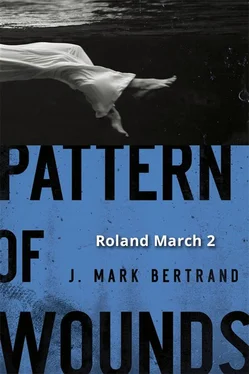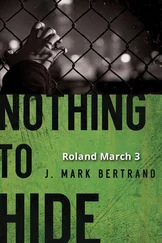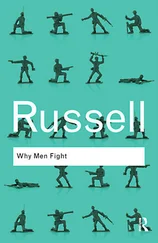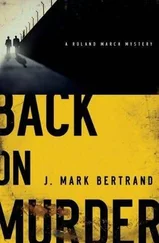J. Bertrand - Pattern of Wounds
Здесь есть возможность читать онлайн «J. Bertrand - Pattern of Wounds» весь текст электронной книги совершенно бесплатно (целиком полную версию без сокращений). В некоторых случаях можно слушать аудио, скачать через торрент в формате fb2 и присутствует краткое содержание. Год выпуска: 0101, Издательство: Baker Publishing Group, Жанр: Полицейский детектив, на английском языке. Описание произведения, (предисловие) а так же отзывы посетителей доступны на портале библиотеки ЛибКат.
- Название:Pattern of Wounds
- Автор:
- Издательство:Baker Publishing Group
- Жанр:
- Год:0101
- ISBN:нет данных
- Рейтинг книги:3 / 5. Голосов: 1
-
Избранное:Добавить в избранное
- Отзывы:
-
Ваша оценка:
- 60
- 1
- 2
- 3
- 4
- 5
Pattern of Wounds: краткое содержание, описание и аннотация
Предлагаем к чтению аннотацию, описание, краткое содержание или предисловие (зависит от того, что написал сам автор книги «Pattern of Wounds»). Если вы не нашли необходимую информацию о книге — напишите в комментариях, мы постараемся отыскать её.
Pattern of Wounds — читать онлайн бесплатно полную книгу (весь текст) целиком
Ниже представлен текст книги, разбитый по страницам. Система сохранения места последней прочитанной страницы, позволяет с удобством читать онлайн бесплатно книгу «Pattern of Wounds», без необходимости каждый раз заново искать на чём Вы остановились. Поставьте закладку, и сможете в любой момент перейти на страницу, на которой закончили чтение.
Интервал:
Закладка:
CHAPTER 18
SUNDAY, DECEMBER 13 — 9:09 P.M.
When he returned to New Orleans a year after the hurricane, Gene Fontenot found himself a brick one-story in Westwego across the river from Audubon Park, an ugly house with a bare concrete patio, where he could grill steaks and drink beer after-hours, separated from the mud-colored Mississippi by a rusted shipyard. To mark my arrival, he carries a chair from the breakfast table out onto the slab. We sit and listen to the sizzle of cooking meat, and Gene pulls a couple of longnecks from the cooler.
“None for me,” I say.
“Come on, now.” He extends the bottle closer, then sets it aside with a suit-yourself smile. “I don’t recall you being a teetotaler-but whatever. I checked up on that boy you were asking about, Wayne Bourgeois, and if you want, we can pay him a visit later on. He stays up at his stepsister’s place on Desaix Boulevard, over by the fairgrounds. It wouldn’t hurt to know why he’s in your gunsights.”
“Remember Donald Fauk?”
He lifts his hands. “How could I forget?”
“My information is, when Bourgeois got out of Huntsville, he had an errand to run for Fauk. I assume, based on the fact he came back here, that this task of his was local. Now, what would Fauk want done in New Orleans? The only thing I can come up with has to do with you.”
“I’ve never heard of this boy before. What’s his sheet look like?”
“He beat the living daylights out of a prostitute, but I don’t think that’s got anything to do with the situation. Apparently, Fauk’s been paying off newly released cons to do odd jobs he can’t run through his team of lawyers. For example, this trial that just fell apart on you, the one that sparked the internal investigation? Is it possible Bourgeois coached your suspect on what to say, maybe gave him a plausible story that would make the confession sound coerced?”
He laughs at the idea, takes a swig from his bottle, and sets it on the concrete. He wipes his mouth with the back of his hand.
“That doesn’t sound too likely.”
“Are you sure about that?”
“What that defense attorney said in the courtroom. . Much as it pains me to concede anything to the man, that’s pretty much what happened.” The words come out light and sarcastic, like this admission is no big deal, only he can’t look me in the eye.
“What are you saying, Gene?”
“The little dirtbag was guilty, make no mistake. But without any physical evidence tying him to the scene, and with my witness coming over with a sudden case of amnesia, there was no sticking it to him without a straight-up admission. Lucky for me when we picked him up he’d collected a few bruises, including a nice one right here on the biceps.” He taps his arm to show me just where. “Before the interrogation, I conducted a little pre-interview, and whenever he lied to me I gave him a punch on the arm. This boy had just smoked a man in cold blood, two shots to the head, and I had him crying like a baby from a few taps.” He chuckles at the memory, still avoiding eye contact. “And don’t tell me you never do things like that in Houston, ’cause I wasn’t born yesterday. In fact, I seem to recall a little talk we had once upon a time, a regular meeting of the minds. .”
I shake my head.
“You’ve had your eyes opened, too,” he says. “Don’t deny it.”
The steaks are too rare for my taste. I eat mine anyway, chewing in silence, listening for sounds of the river in the distance. The air is stagnant and wet, as thick or thicker than what we breathe in Houston, but not cold. He’s comfortable in shirt-sleeves and I’m almost tempted to strip out of my jacket. Something makes me not want to get too comfortable in Gene’s presence, though.
When we’re done, he goes into the house to retrieve his side arm, wedging the paddle holster into his belt. Then he pulls on a black windbreaker and cocks his thumb at the door.
“Ready to roll?”
We take Gene’s pickup, looping on Highway 90 to cross the river. The bridge takes us into downtown. Gene cuts over to I-10 and exits at St. Bernard Avenue, taking that all the way to Desaix. As he drives, I glance out the passenger window, entertaining a host of second thoughts. Meeting Gene again is like reconnecting with a buddy from high school, someone you had everything in common with at one point, and nothing in common with now. More than awkward, the reacquaintance calls into question all my earlier impressions of the man.
I glance over at him. He seems content, maybe a little excited by the prospect of bashing some heads together. Operating in his element. It dawns on me that Gene Fontenot is bent. He’s the proverbial crooked cop, convinced what he’s doing amounts to greasing the wheels of justice, helping the jammed machinery get itself moving again. In my time I’ve only met a few bad cops, and before now I’ve always worked against them, as committed to the fight in my own way as Wilcox is in his.
But Gene looks at me and sees another version of himself. Another cop who’s had his eyes opened, as he put it. In other words, he sees in me the same thing my ex-partner does, the only difference being that he’s delighted.
We pull up in front of a painted stick shamble overshadowed by a live oak. Small symmetrical windows on either side of the front door, a cracked concrete walk stretching from the door to the sidewalk. Tree roots run straight across the path. In lieu of a driveway, two paved ruts in the grass run alongside the house. An old-fashioned refrigerator lies upended in the yard with a kid’s bicycle propped against the dented metal.
“The woman’s got no husband,” Gene says. “She lives in a dump like this raising her kid, and now she’s got an ex-con half brother bringing the law to her doorstep. How’s that for a life?”
He pushes the driver’s door open and slides down, tucking his windbreaker behind his pistol the way a woman brushes a lock of hair behind her ear. Then he strides up the walkway with me a couple of paces behind, using his flashlight to inspect the surrounding ground.
“Maybe I should do the talking,” I say.
Gene just smiles, rapping a knuckle on the door. “My patch, my lead.”
A kid maybe five or six years old answers, looking up at us with big eyes, his skinny arms poking out of a wife-beater.
“Wha’ chall want?” he asks in a surprisingly mature, even world-weary voice, like he’s been manning the door all night and is tired of being disturbed.
“Your mama in there?” Gene asks.
“No, she ain’t.”
“How about your uncle, then?”
The kid looks over his shoulder, then back. “Who wants to know?”
“Who do you think?” Gene pushes the door wide, forcing the kid back and revealing a man frozen on the threshold of the hallway, still holding a finger over his lips. “Don’t make a big deal out of this, son. We only want to talk to you.”
Wayne Bourgeois scratches his chin in thought, eyes darting, and for half a second I expect him to run. But then he sighs and motions us inside, telling his nephew to beat it into a back bedroom. The kid starts to argue until Bourgeois raises the back of his hand.
“Go on,” Gene says. “And you put your hand down before I break it off. Now grab yourself some chair and get your vocal cords ready, because we’re gonna have ourselves a little chat-and by ‘little’ I mean as long as it takes.”
Bourgeois lowers himself onto a plush recliner, the fabric all rubbed to a high shine. He’s barefoot with only his toes sticking out from the hem of his ragged jeans. His body is hidden by an oversized Saints hoodie that leaves the prison tats on his neck in full view. Judging from the stubble on his chin, he hasn’t shaved in days. And there’s a smell coming off him, a bouquet of body odor and marijuana.
Читать дальшеИнтервал:
Закладка:
Похожие книги на «Pattern of Wounds»
Представляем Вашему вниманию похожие книги на «Pattern of Wounds» списком для выбора. Мы отобрали схожую по названию и смыслу литературу в надежде предоставить читателям больше вариантов отыскать новые, интересные, ещё непрочитанные произведения.
Обсуждение, отзывы о книге «Pattern of Wounds» и просто собственные мнения читателей. Оставьте ваши комментарии, напишите, что Вы думаете о произведении, его смысле или главных героях. Укажите что конкретно понравилось, а что нет, и почему Вы так считаете.












